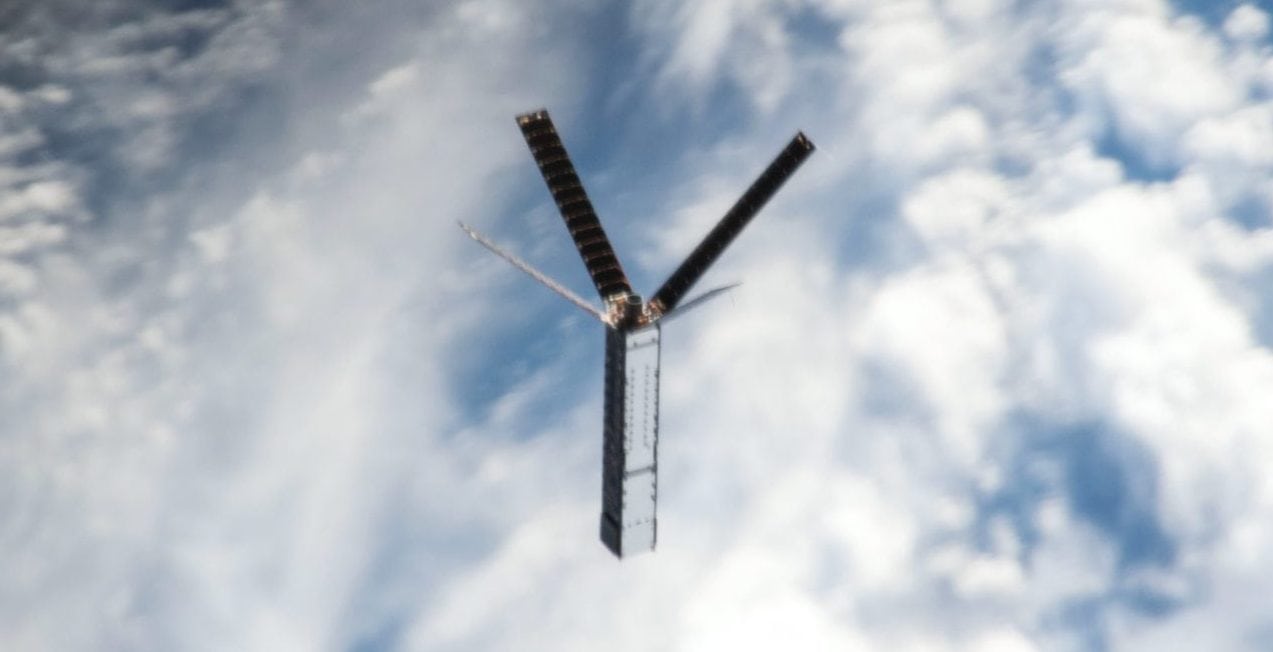
Millenium Space Systems’ ALTAIR small satellite. (Millenium)
Boeing, which filed with government regulators in 2016 for a potential network of thousands of small satellites to provide global Internet access, has agreed to acquire Millenium Space Systems, a developer and maker of small satellites, in a deal that would provide it with a new line of business within its space portfolio, the company announced Thursday.
Boeing’s satellite business is known for the larger communications and navigation systems it sells to military and commercial customers.
California-based Millennium has developed the AQUILA small satellite that provides classified sensing capabilities for the Air Force and also developed the ALTAIR Pathfinder spacecraft, which is in orbit, and was designed for low-cost, rapid acquisition. The ALTAIR satellite was built to prove out the avionics, software and additive manufacturing techniques.
“Millennium Space Systems’ expertise in vertically integrated small-satellite solutions perfectly complements Boeing’s existing satellite portfolio, and will allow us to meet the needs of a diverse customer set,” Leanne Caret, president and CEO of Boeing’s Defense, Space & Security segment, said in a statement. “We look forward to incorporating Millennium Space Systems’ end-to-end mission solution capabilities into our service offering in satellite operations and data solutions.”
Millenium CEO Stan Dubyn said in a statement that “By combining our tools, talent, technologies and culture, we’ll be able to do even more incredible things as part of Boeing.”
Marco Caceres, a space market analyst with the Teal Group, told Defense Daily that, like Boeing, there are other space systems companies that are looking to build “massive constellations” of small satellite systems for affordable Internet capabilities worldwide. Other companies are ahead of Boeing in this regard and some are expected to begin operating satellites within the next few years.
“Boeing, really, has not done anything with its program; it’s kind of stalled,” Caceras said, perhaps due to a lack of an organic capability and expertise to build and rapidly produce these small satellites. As such, it would either have to contract that production out or develop the capability itself, which can be done more quickly through an acquisition of an existing manufacturer.
Millennium in March 2016 broke ground on new manufacturing space in California to be able to build up to hundreds of satellites each year.
Caceres also said Boeing’s reason for acquiring Millennium could be its “acknowledgment that the market is moving very quickly to reliance on small satellites as opposed to the big ones that Boeing traditionally is known for.” This deal would help Boeing stay competitive in a changing market, he said.
Terms of the deal were not disclosed and Boeing said it won’t be material to its financial guidance this year. Boeing expects the acquisition to close by the end of the quarter. Millennium was founded in 2001 and has 260 employees.
Once the deal closes, Millennium will operate as a subsidiary under its current business model and report to Boeing’s Phantom Works division.